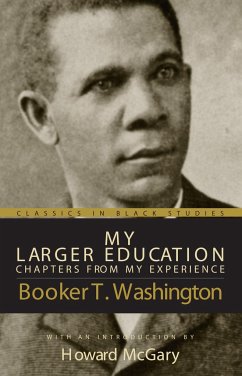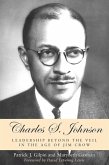The leading African American leader in the late nineteenth and early twentieth centuries was Booker T. Washington. His conciliatory stance toward the white majority, preference for working behind the scenes rather than public protest to remedy discrimination, and emphasis on education in the practical trades for the black masses as opposed to a liberal arts education, all won favor with prominent white politicians and businessmen. Among many black intellectuals, however, Washington was a controversial figure. They criticized his lack of public emphasis on civil rights and felt that his leadership style almost guaranteed a bleak future of segregation and second-class status for blacks. In this book, a sequel to his famous autobiography, Up from Slavery (1901), he lays out his philosophy of hard work and cooperative attitudes in persuasive and reasonable terms. He describes the men and experiences that had a lasting influence on his thinking and the impressive achievements of his Tuskegee Normal and Industrial Institute in Alabama. He also respectfully disagrees with his critics among black intellectuals. Chief among these was W. E. B. Du Bois, who criticized Washington's slow, patient methods and passive stance in the teeth of so much injustice. Indeed, reading Washington's account, one would never know that in the 1890s lynching reached an all-time high, that blacks were effectively disenfranchised in their own communities, and that the grip of poverty among African Americans was virtually ensured by the white power structure. However controversial his career, My Larger Education is still worth reading as an important document in African American history, and Washington's emphasis on economic empowerment for blacks is a continuing theme to this day.
Hinweis: Dieser Artikel kann nur an eine deutsche Lieferadresse ausgeliefert werden.
Hinweis: Dieser Artikel kann nur an eine deutsche Lieferadresse ausgeliefert werden.








